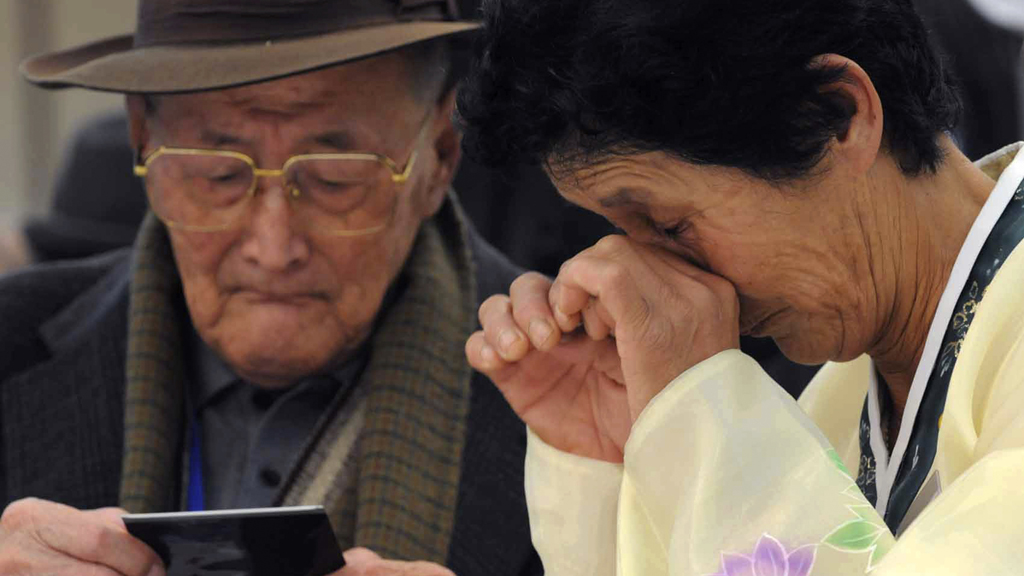North Korea cancels war-torn families reunion
North Korea is labelled “inhumane” after it indefinitely postpones a series of reunions for families divided by the Korean War.

Six days of meetings for families divided by the 1950-53 war had been scheduled to start on Wednesday in the Mount Kumgang tourist resort in North Korea, close to the border with South Korea.
But on Saturday the North’s Committee for the Peaceful Reunification of Korea said the South had poisoned dialogue between the two countries.
“The reunions of separated families and relatives between the North and the South will be postponed until there can be a normal atmosphere where dialogue and negotiations can be held,” a spokesman for the committee said.
The meetings would have been the first reunions in three years. Families divided by the Korean War have faced years apart from their loved ones, with travel across the militarised border difficult, and forms of communications between the two sides barred.
North Korea also said it was putting off talks to resume tours of Mount Kumpang, which were suspended after a North Korean guard shot a South Korean tourist in 2008.
‘Broken hearts’
South Korea’s Unification Ministry said the decision was “very regrettable”.
“North Korea should be criticised for its inhumane behaviour that broke the hearts of all families separated by the war and of all South Koreans in general,” ministry spokesman Kim Eui-do said.
North Korea’s decision disrupts a recent thawing of relations between the two countries.
The two sides this week reopened a shuttered jointly-run industrial complex just inside the North, shut down by Pyongyang authorities during weeks of high tension in April.
At the height of the tensions, North Korea issued daily threats to engulf both South Korea and its ally, the United States, in a nuclear war in response to new UN sanctions against Pyongyang.
Sanctions were imposed on North Korea after a series of nuclear tests.
Tensions have since waned, although a US research institute and a US official this month said that satellite imagery suggested North Korea had restarted a research reactor at its Yongbyon nuclear complex.